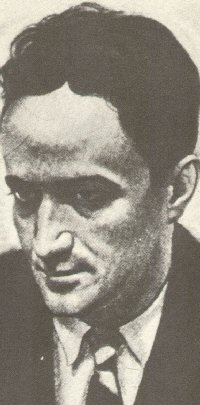Jean Toomer was born into an elite black family in Washington, D.C. in 1894. Abandoned by his father as a newborn and losing his mother to appendicitis as a teenager, Toomer spent his formative years in the home of his grandparents, P.B.S. and Nina Pinchback. P.B.S. Pinchback served as a state senator and governor of Louisiana during Reconstruction and nearly represented Louisiana in the United States Senate. After Redemption, Pinchback moved his family to Washington, D.C. where he opened a law firm.
After graduating from Dunbar High School, Toomer enrolled in the agriculture program at the University of Wisconsin but he remained there for less than a year. Between 1916 and 1919, Toomer attended the University of Chicago and took courses at various colleges including New York University, City College, and the Rand School of Social Science. He also sold cars in Chicago, taught physical education in Milwaukee, and worked as a New Jersey ship fitter.
By 1920, Toomer settled in New York, where he began writing poems and short stories. His publication in the “little magazines” of the literary left brought him into contact with some of the most important writers of the period: Lola Ridge, Claude McKay, Waldo Frank, Sherwood Anderson, and Hart Crane among others. It was the 1923 publication of Cane, however, which put Toomer squarely in the center of the literary movement known as the Harlem Renaissance. A collection of thematically linked poems, character sketches, and short stories, Cane addressed numerous themes, including the destructive influence of industrialization and urbanization on black folk cultures, social stratification within the black community, and the problematic influence of Christianity on African Americans’ responses to racial oppression.
Toomer continued to write but none of his work would receive nearly the same critical acclaim that Cane did. Toomer died in 1967 at the age of 72.

